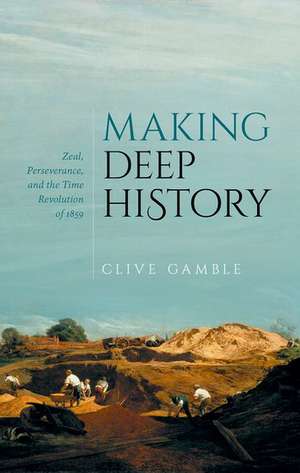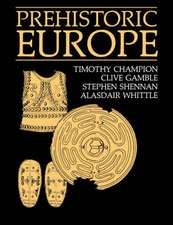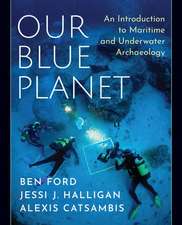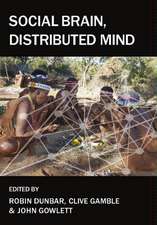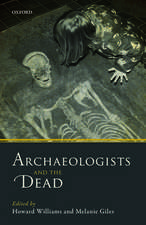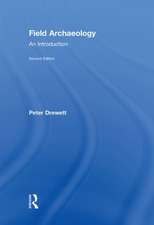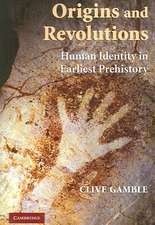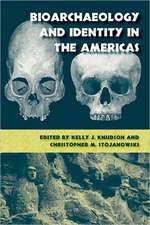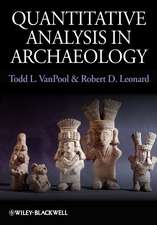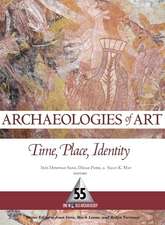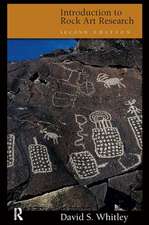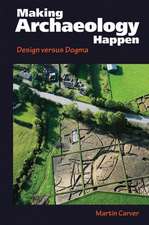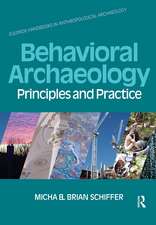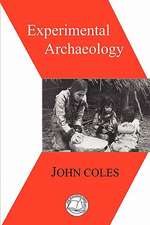Making Deep History: Zeal, Perseverance, and the Time Revolution of 1859
Autor Clive Gambleen Limba Engleză Hardback – 25 mar 2021
Preț: 196.11 lei
Preț vechi: 224.62 lei
-13% Nou
Puncte Express: 294
Preț estimativ în valută:
37.52€ • 39.28$ • 31.05£
37.52€ • 39.28$ • 31.05£
Carte disponibilă
Livrare economică 04-10 martie
Livrare express 04-08 martie pentru 60.83 lei
Preluare comenzi: 021 569.72.76
Specificații
ISBN-13: 9780198870692
ISBN-10: 0198870698
Pagini: 328
Ilustrații: 52
Dimensiuni: 145 x 221 x 25 mm
Greutate: 0.58 kg
Editura: OUP OXFORD
Colecția OUP Oxford
Locul publicării:Oxford, United Kingdom
ISBN-10: 0198870698
Pagini: 328
Ilustrații: 52
Dimensiuni: 145 x 221 x 25 mm
Greutate: 0.58 kg
Editura: OUP OXFORD
Colecția OUP Oxford
Locul publicării:Oxford, United Kingdom
Recenzii
As Gamble reveals in this compelling report, instrumental photos and even the flint itself (unearthed in the Natural History Museum at his prompting) had been overlooked until recently. Here we can read about the event...the characters, their world and the subsequent debate, detailed day by day in the text and extensive footnotes and references. If only the archaeologists had written a best-selling book at the time. Fascinating.
This work delivers a fatal blow to the Victorian idea of separate spheres, clearly showing that the world views and life experiences of Evans et al. informed and influenced their ability to recognise, interpret and convince others of the evidence for the antiquity of humanity. Making deep history is archaeological storytelling at its finest, anchoring the birth of prehistory in the lives of the men—and women—who gave the world the gift of endless time.
Making Deep History concerns the lives and work of four people who played a central role in the demonstration of human antiquity. [...] This entertaining book traces their biographies and the impact of their ideas - 162 years after their original discovery it does belated justice to the 'time revolutionaries'.
Making Deep History is an engaging and readable account of the mid-Victorian time revolution, which will be of interest to both those who are already interested in the concept, and those who are unfamiliar with it and want to understand its potential significance.
This work delivers a fatal blow to the Victorian idea of separate spheres, clearly showing that the world views and life experiences of Evans et al. informed and influenced their ability to recognise, interpret and convince others of the evidence for the antiquity of humanity. Making deep history is archaeological storytelling at its finest, anchoring the birth of prehistory in the lives of the men—and women—who gave the world the gift of endless time.
Making Deep History concerns the lives and work of four people who played a central role in the demonstration of human antiquity. [...] This entertaining book traces their biographies and the impact of their ideas - 162 years after their original discovery it does belated justice to the 'time revolutionaries'.
Making Deep History is an engaging and readable account of the mid-Victorian time revolution, which will be of interest to both those who are already interested in the concept, and those who are unfamiliar with it and want to understand its potential significance.
Notă biografică
Clive Gamble is an archaeologist and Emeritus Professor at the University of Southampton. He is currently a member of its Centre for the Archaeology of Human Origins that he founded in 2001. His recent participation in the British Academy's Centenary Project brought together archaeologists and psychologists to research when hominin brains became human minds. The results are published in Thinking Big: How the Evolution of Social Life Shaped the Human Mind (2014, with John Gowlett and Robin Dunbar). He is a Fellow of the British Academy, the Society of Antiquaries of London, and the Royal Anthropological Institute. He is President of the Prehistoric Society and from 2010-2018 was a Trustee of the British Museum.
